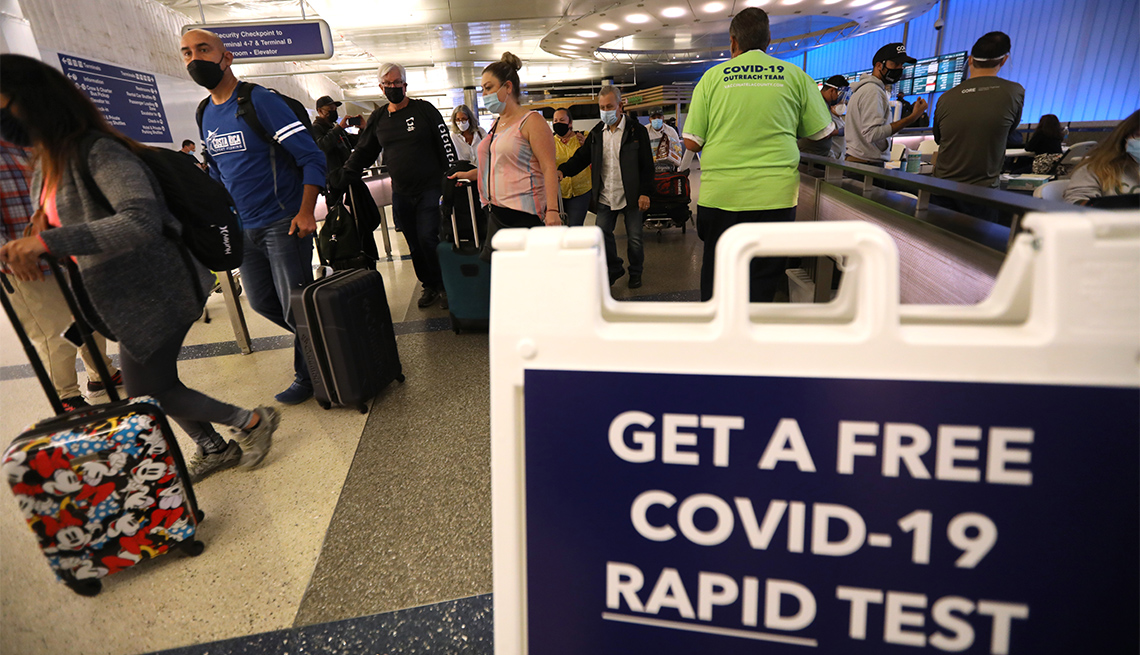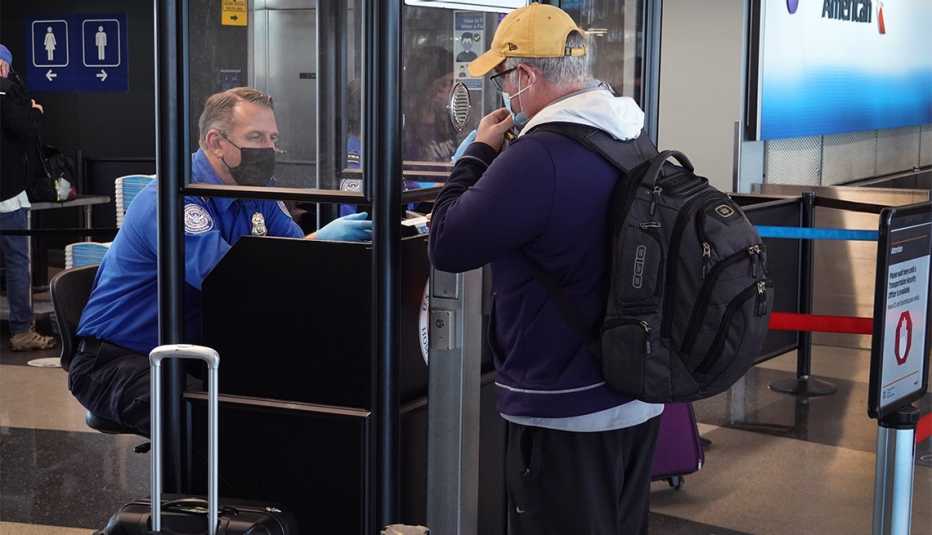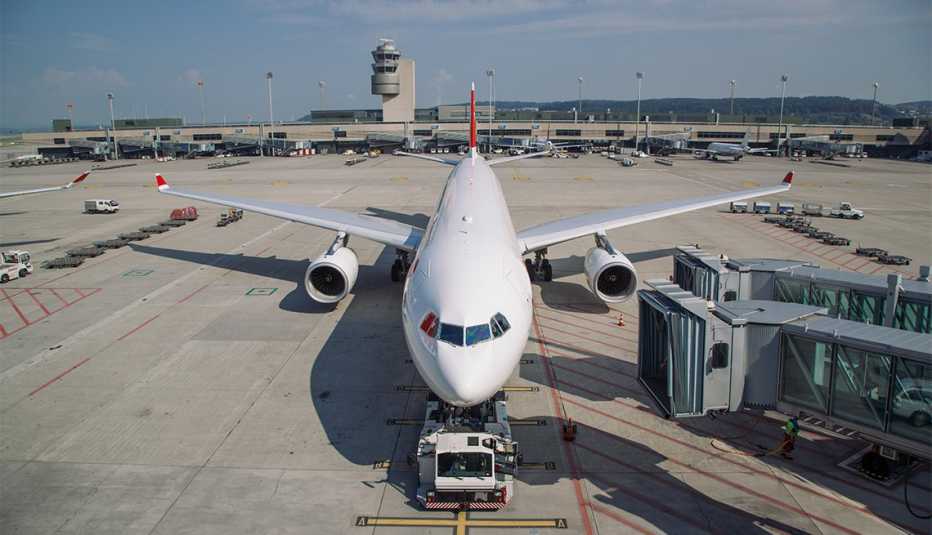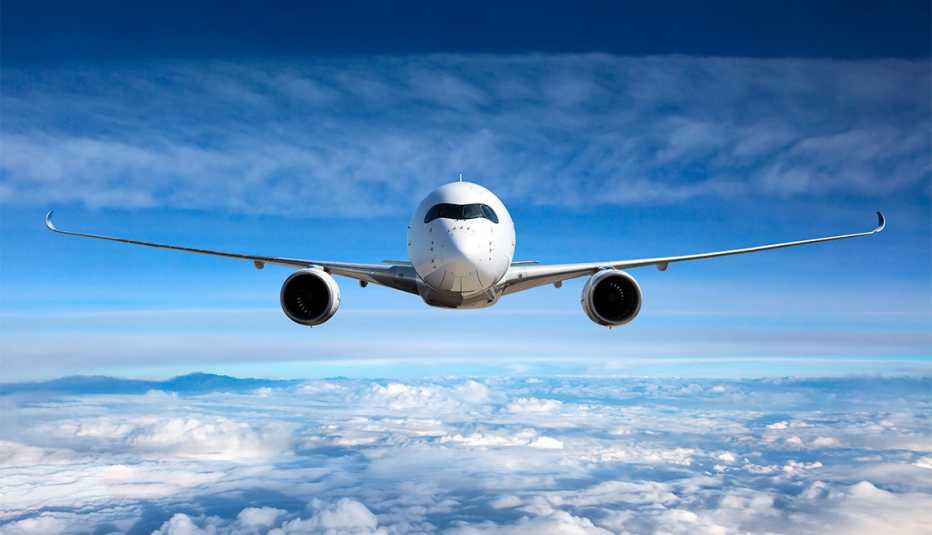AARP Hearing Center
With the Centers for Disease Control and Prevention (CDC) requirement that all travelers coming to the United States provide official proof of a negative COVID-19 test taken within one day of their flight, travelers are understandably nervous — and a bit confused — about the whole process.
Here are some answers to common questions about COVID-19 testing for travel.
What is the hotel testing process like? Many hotels have the return COVID-19 testing process set up seamlessly. For example, on my recent trip to Riviera Nayarit, Mexico, the Dreams Bahía Mita Surf & Spa Resort gave me COVID-19 testing forms upon check-in, with a testing appointment scheduled the day before my checkout ($35 per test, free for Club Level guests). At my appointment time, masked guests were waiting with their passports in a hallway outside a conference room converted into a testing center. Inside, a nurse from a contracted health provider administered Abbott’s rapid antigen test with a nose swab. I waited semi-nervously to receive the text message about 15 minutes later, which indicated that my test was negative. (If the test comes back positive, the resort offers free quarantine lodging for up to 14 days.) The hotel provided an official form certifying the results (I took a photo of the page for backup). At the Puerto Vallarta airport, I provided my test results form when I checked in and was good to return home.
What are the U.S. testing rules for international travel?
For reentry to the U.S., the CDC requires all air passengers age 2 years and older (including U.S. citizens and fully vaccinated passengers) to provide either documentation of a negative test taken within one day of their flight or documentation of recent recovery from COVID-19, along with a letter from a health professional certifying that the person is cleared to travel. The test must be an authorized viral antigen or nucleic acid amplification test (NAAT).
Note that non-U.S. citizens need to show proof of vaccination prior to their flights to the U.S.





































































